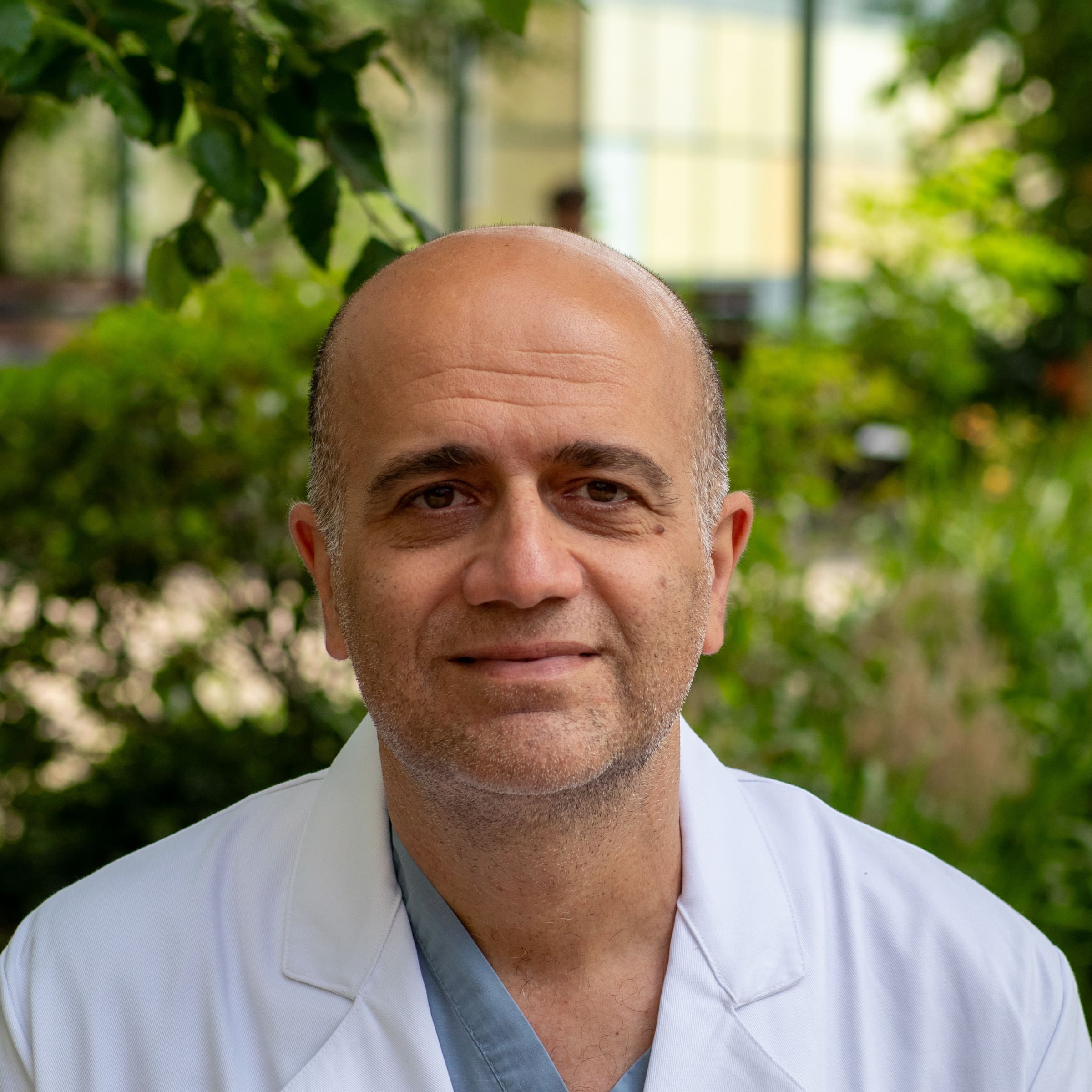Awake Deep Brain Stimulation
Definition
Awake deep brain stimulation (DBS) is a medical treatment involving the implantation of electrodes into specific areas of the brain while the patient is awake. This procedure is used to modulate abnormal brain activity in conditions such as Parkinson's disease, essential tremor, and dystonia. The patient's awake state allows for real-time feedback and optimal electrode placement to achieve the best possible therapeutic outcomes.
Related Specialists
Showing 3 of 23
Related Fact Sheets
Related Clinical Trials
Related News
Showing 3 of 5
Related Departments
Showing 3 of 62
Neurology
Yale’s Department of Neurology has been at the forefront of cutting-edge clinical care and scientific discovery since it began in 1952. It was Yale scientists who discovered the genes that cause Multiple Sclerosis. Yale housed one of the first epilepsy monitoring units in the country, and one of the first stroke centers at its partner, the Veterans Affairs (VA) Center in West Haven. Today, our team of experienced doctors are committed to understanding and treating the entire spectrum of nervous system diseases. Expert physicians specialize in brain and nerve health for both children and adults. Specialized care is offered in the following areas: Amyotrophic lateral sclerosis (ALS), myasthenia gravis, peripheral neuropathy, neuromuscular disorders Alzheimer’s disease/cognitive disorders Epilepsy and neurophysiology General neurology, headache, pain Multiple sclerosis and neuroimmunology Neurodegenerative disorders Neurocritical care Neurological infections Neuro-oncology Parkinson’s disease and movement disorders Stroke and vascular neurologyYale Cancer Center
Yale Cancer Center is Connecticut's only cancer center designated as a Comprehensive Cancer Center by the National Cancer Institute—and one of only 57 in the nation. The significance of this designation has profound implications for those who choose Smilow Cancer Hospital as the place where they will be cared for and receive treatment for their cancer. National Cancer Institute cancer centers are national leaders in cancer research, prevention, detection, and treatment. This provides patients at Smilow Cancer Hospital with novel treatment options and expert care.Movement Disorders
Movement disorders can be caused by diminished or slowed voluntary movements (hypokinetic) or increased involuntary movements (hyperkinetic).Parkinson’s disease is the most common of these hypokinetic degenerative disorders, but we also treat progressive supranuclear palsy (PSP), multiple system atrophy (MSA) and corticobasal ganglionic degeneration. Our expertise in hyperkinetic disorders includes Huntington’s disease, Tourette’s syndrome, essential tremor, and dystonia. We diagnose and treat all movement disorders, whether they are caused by primary nervous system dysfunction or by strokes or medications. Our team has expertise in tremor disorders, primary and secondary ataxias, gait disorders, restless legs syndrome, and stiff-person syndrome.





